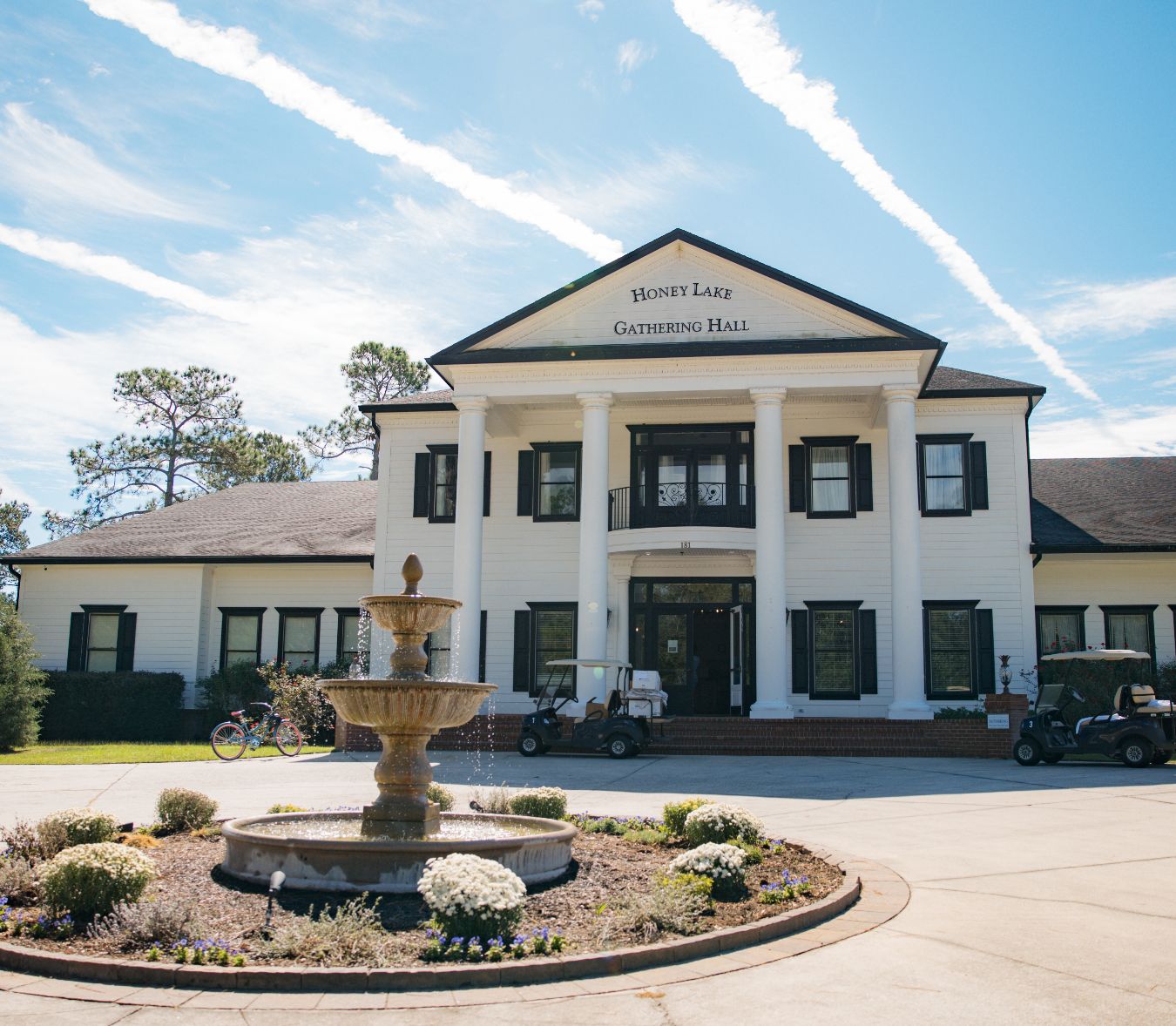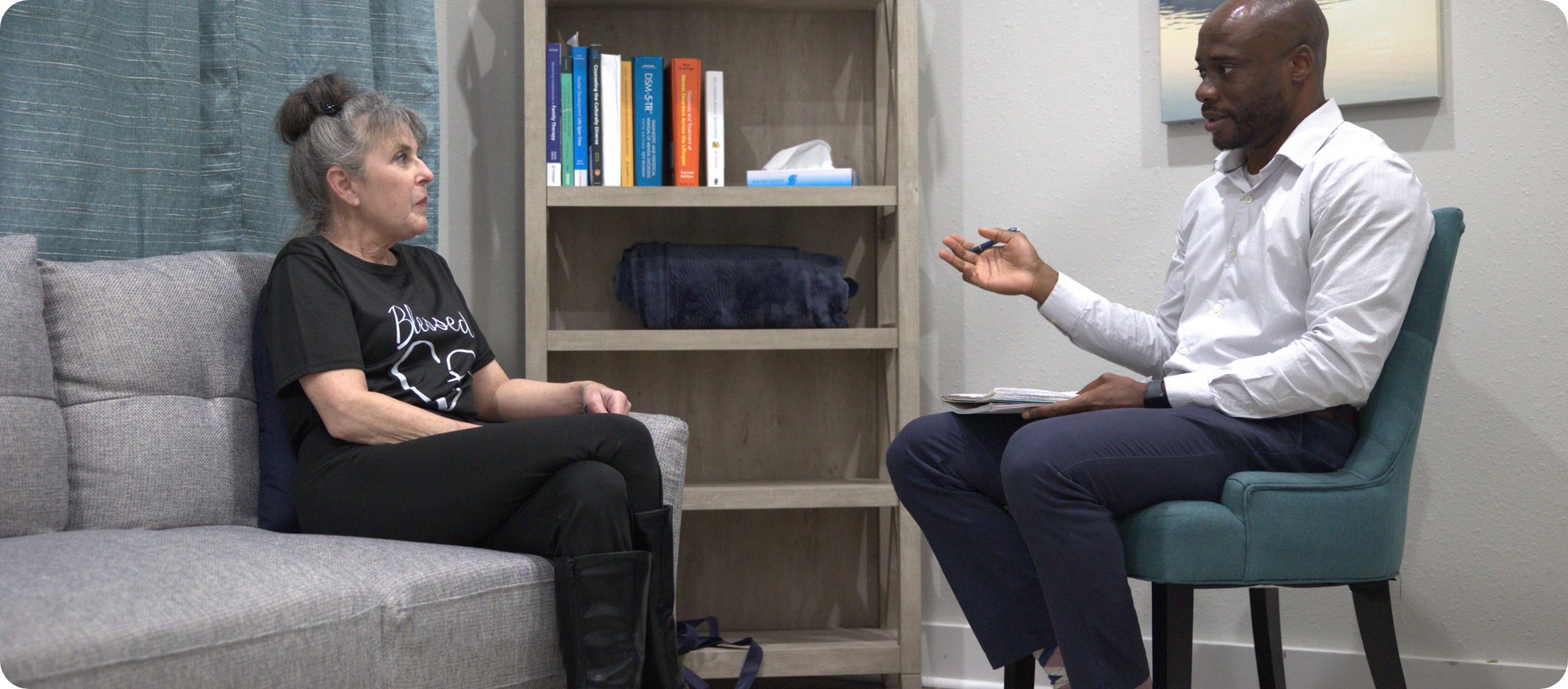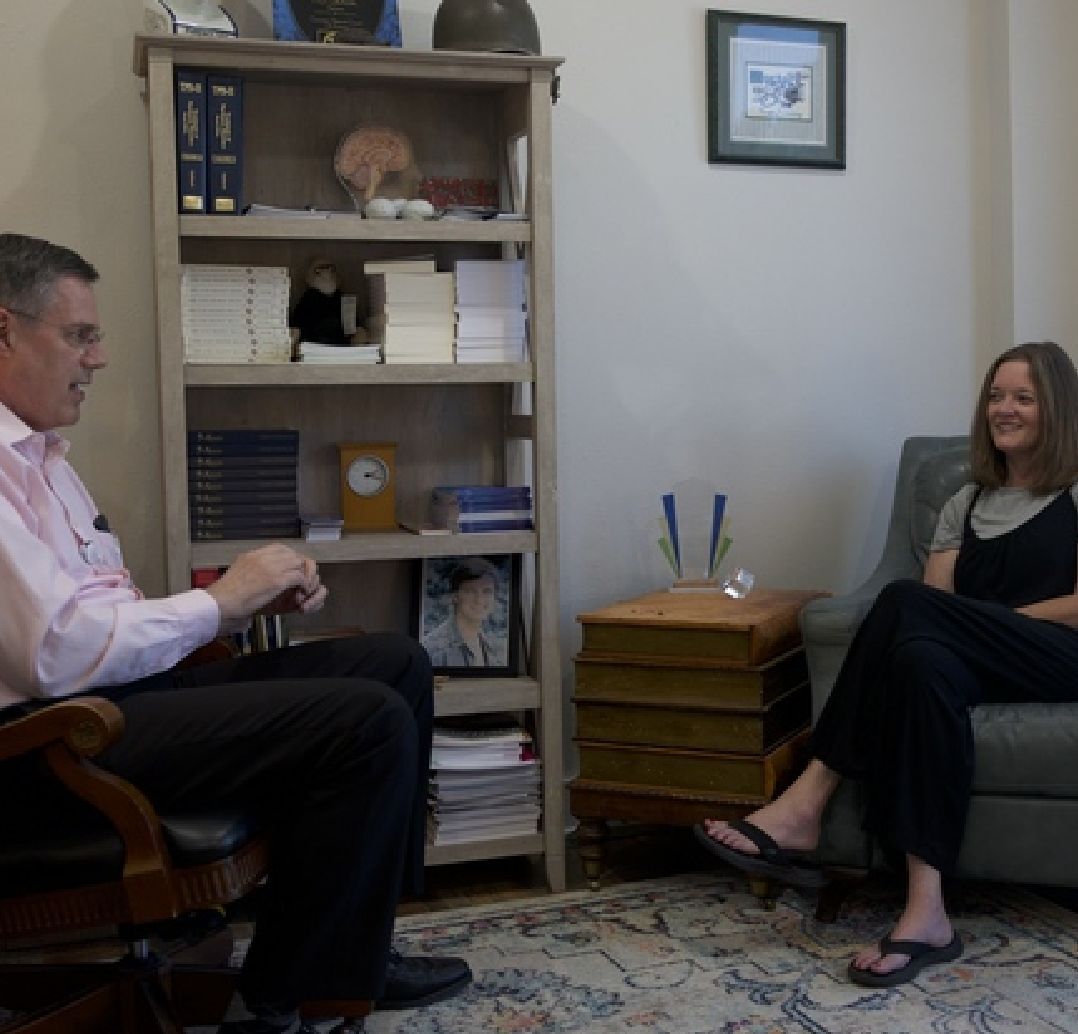You’re Not Overreacting—
Faith-Based Care for Acute Stress and Trauma
You’re Not Overreacting—Faith-Based Care for Acute Stress and Trauma
After a traumatic experience, it’s common to feel overwhelmed, confused, or emotionally raw. But when those symptoms start to interfere with daily life, they may point to acute stress disorder (ASD)—a real, diagnosable condition that deserves real care. Whether you’re feeling frozen by fear or stuck in a loop of racing thoughts and panic, you are not alone.
At Honey Lake Clinic, we walk with people in the vulnerable days after trauma—helping them process what’s happened, reclaim peace of mind, and reconnect with their faith. Our Christ-centered approach is guided by board-certified psychiatrists and licensed trauma therapists, and 98% of our patients report meaningful progress during their stay. If trauma has shaken your world, we’re here to help you feel steady again.
Call to to talk with someone who understands what you’re going through.

What Is Acute Stress Disorder?
Acute stress disorder (ASD) is a short-term condition that can occur in the days or weeks following a traumatic event, such as a car accident, assault, natural disaster, sudden loss, or witnessing violence. It’s the mind’s way of reacting to something overwhelming and terrifying—and while some symptoms may seem similar to PTSD, ASD occurs within the first 3 to 30 days after the trauma.
Without support, ASD can develop into post-traumatic stress disorder (PTSD)—but with early intervention and compassionate care, healing is possible.
Symptoms of Acute Stress Disorder
- Intrusive thoughts, nightmares, or flashbacks
- Emotional numbness or detachment
- Feeling dazed, disconnected, or in a fog (dissociation)
- Difficulty sleeping or concentrating
- Heightened startle response or constant tension
- Avoidance of reminders of the trauma
- Panic attacks or intense anxiety
- Outbursts of anger or sadness
These symptoms may appear suddenly and feel out of control—but they are not a sign of weakness. They are your body and brain trying to process pain too big to carry alone.

You Survived the Moment—Now Let Us Help
You Heal From It
You Survived the Moment—Now Let Us Help You Heal From It
Many adults push through trauma without giving themselves space to heal. You might look fine on the outside—still showing up to work or caring for your family—but inside, you’re stuck in survival mode. Emotional detachment, sleepless nights, and anxiety may be daily battles you silently endure.
At Honey Lake Clinic, we help adults recognize the signs of acute stress reactions and provide a safe place to process pain in a healthy, Christ-centered way.

Adult Treatment for Acute Stress Disorder
Adult Treatment for Acute Stress Disorder
Our approach focuses on calming the nervous system, restoring safety, and working through the trauma itself—rather than avoiding it. Treatment options for adults may include:
- EMDR (Eye Movement Desensitization and Reprocessing) to process traumatic memories
- Cognitive Behavioral Therapy (CBT) for managing anxious thoughts and triggers
- Trauma-focused talk therapy integrated with biblical truth
- Somatic therapies to help the body feel safe again
- Spiritual counseling and guided prayer to reconnect with God’s presence in pain
- Medication management when appropriate
- Equine-assisted therapy and art therapy for non-verbal expression
There is hope—even in the immediate aftermath of trauma.
Call today to begin healing.
Getting help is really brave, even when it doesn’t feel like it.
I had reached a point where I saw no hope—no reason to live. I didn’t believe healing was possible for me. But at Honey Lake Clinic, I found a place where people truly understood both faith and mental health. The peaceful environment, the support, and the care I received made all the difference. I was wrong to think nothing could help me. Honey Lake Clinic did.
— AMANDA N.
Why Choose Honey Lake Clinic
for Acute Trauma Care
Why Choose Honey Lake Clinic for Acute Trauma Care
At Honey Lake Clinic, we treat the whole person—body, mind, and spirit. We don’t just help you manage
symptoms; we walk with you as you reconnect with your identity, your purpose, and your God.
Why families and individuals trust us:
At Honey Lake Clinic, we treat the whole person—body, mind, and spirit. We don’t just help you manage symptoms; we walk with you as you reconnect with your identity, your purpose, and your God.
Why families and individuals trust us:
98% of patients report meaningful progress during treatment
98% of patients report meaningful progress during treatment
Board-certified Christian psychiatrists and licensed trauma therapists
Board-certified Christian psychiatrists and licensed trauma therapists
Specialized programs
for adults
Specialized programs for adults
A peaceful, private campus
designed for rest and healing
A peaceful, private campus designed for rest and healing
Christ-centered approach to clinical care, offering true hope and transformation
Christ-centered approach to clinical care, offering true hope and transformation
You Don’t Have to Stay Stuck in Survival Mode
You Don’t Have to Stay Stuck in Survival Mode
Acute stress may be your brain’s alarm system—but healing is your birthright in Christ.
If trauma has shaken your world, we are here to help you feel steady again.
Call 888.445.0535 today to speak with someone who understands—
and to take the first step toward peace.
Acute stress may be your brain’s alarm system—but healing is your birthright in Christ. If trauma has shaken your world, we are here to help you feel steady again.
Call 888.445.0535 today to speak with someone who understands—and to take the first step toward peace.
Scientifically Validated Healing in a Faith-Based Environment
At Honey Lake Clinic, we believe true healing happens when the mind, body, and spirit are nurtured together. Our integrated approach is both scientifically validated and deeply rooted in Christian faith.
Honey Lake Clinic’s Proven Results:
98%
Feel better now than when admitted
98%
Of patients would recommend Honey Lake Clinic
95%
Reported reduced anxiety
93%
Experienced decreased depression

